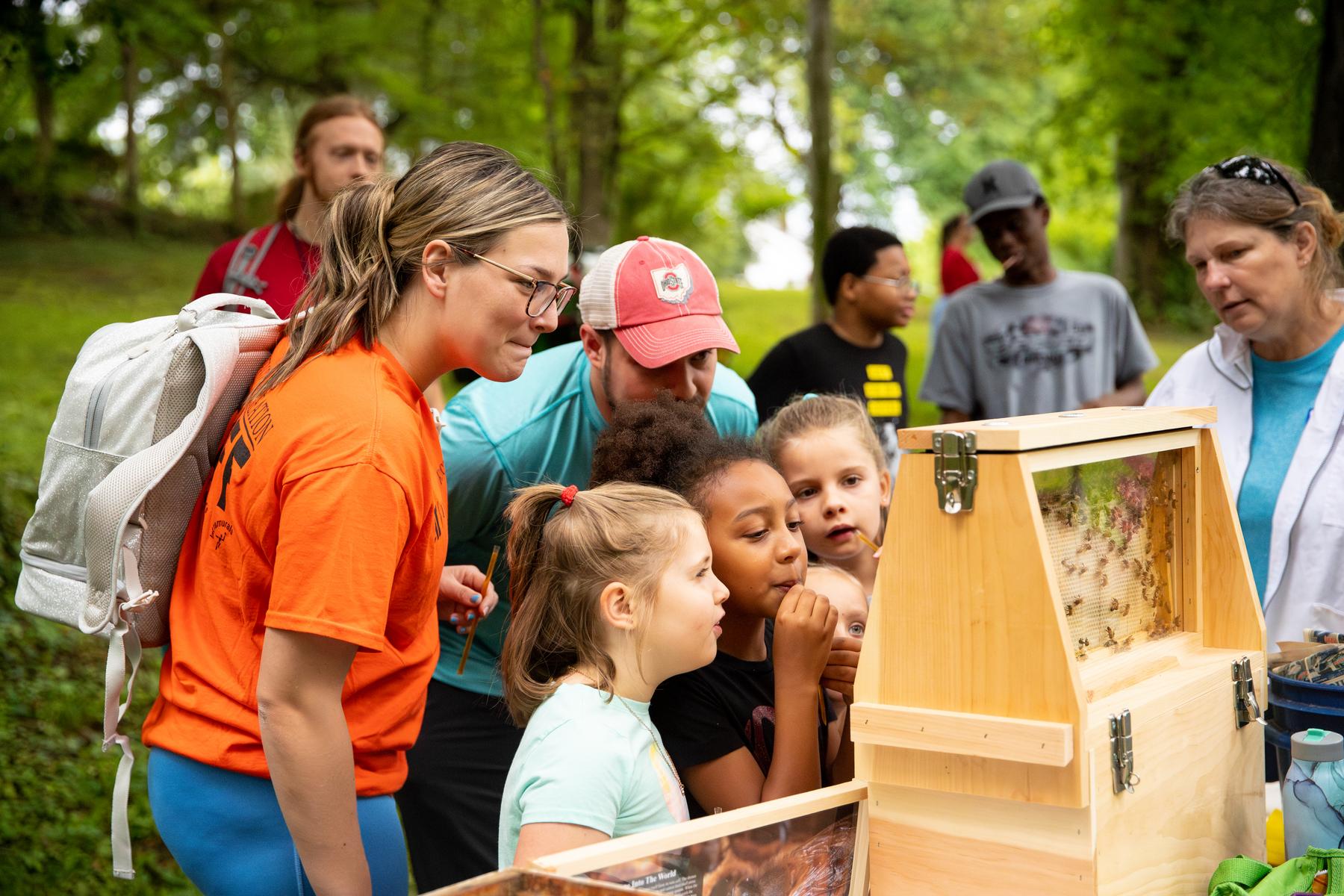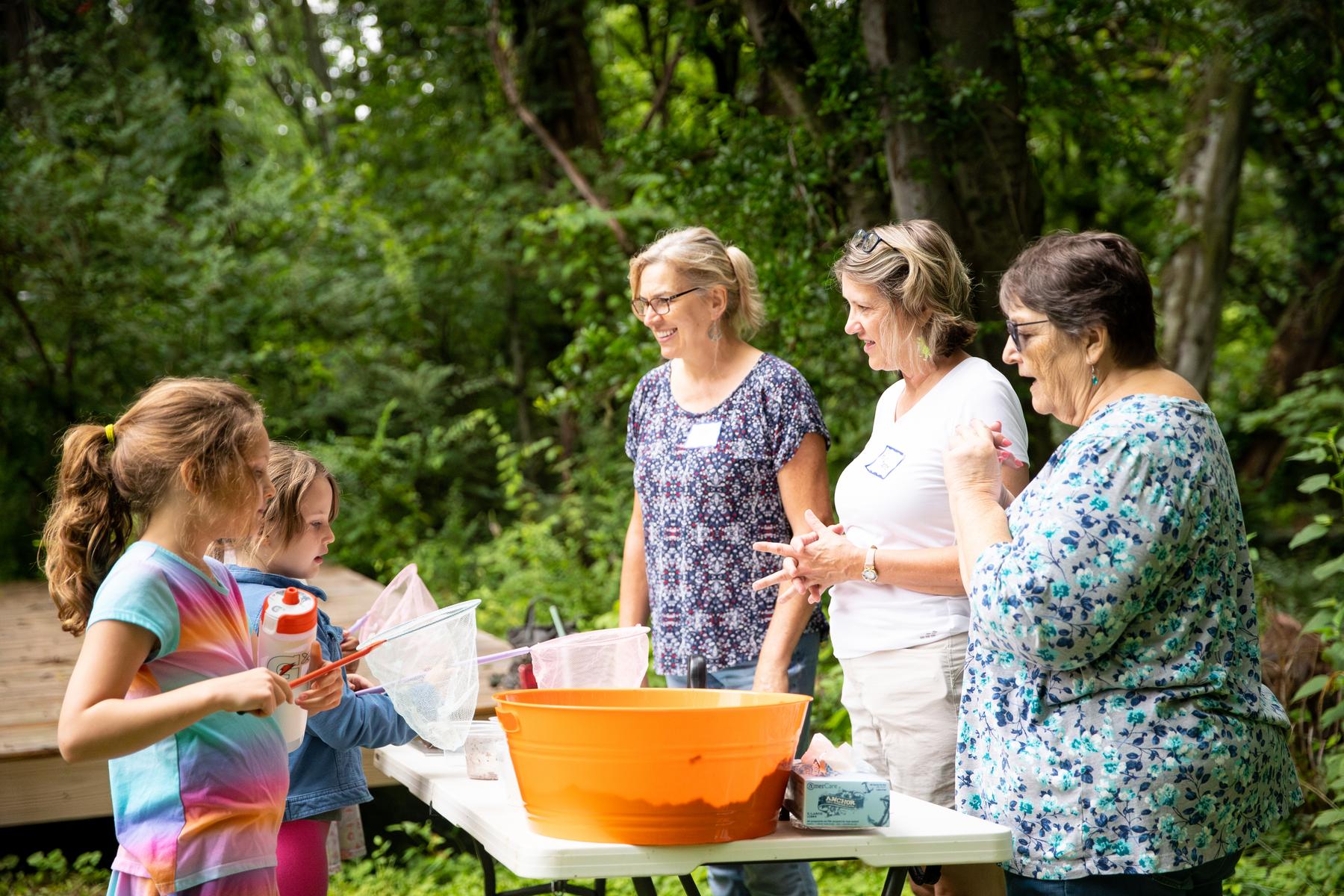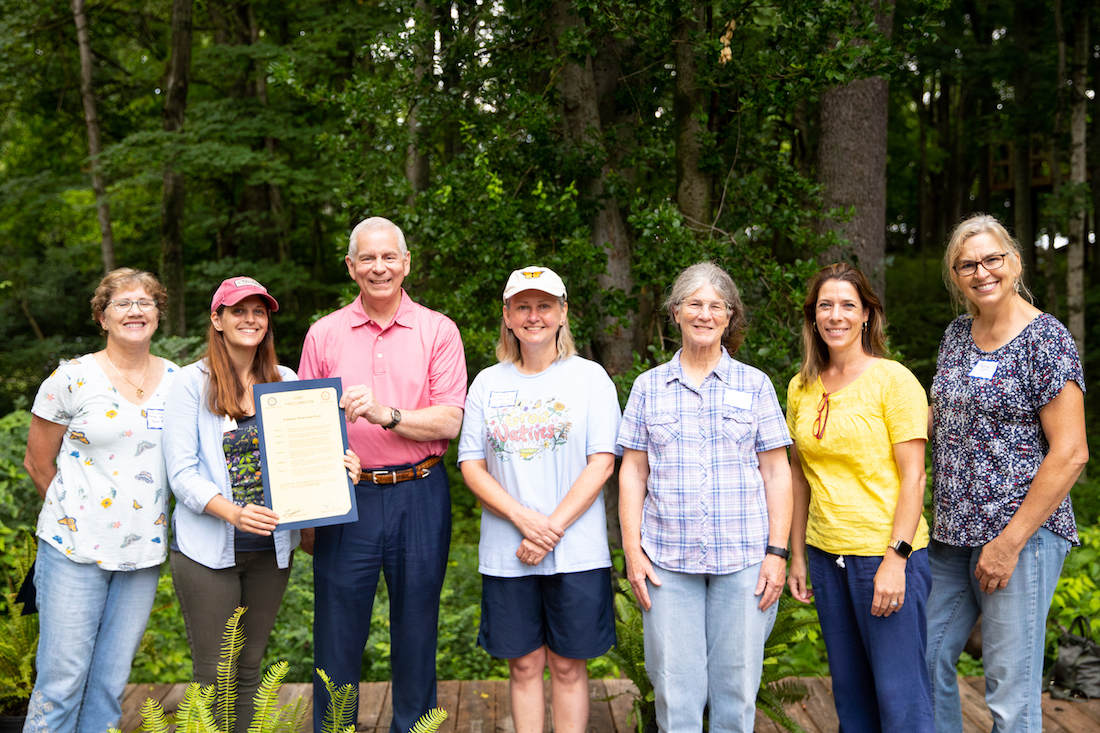APSU, Healthy Yards collaborate to protect native pollinators and plants
(Posted on Friday, June 30, 2023)
CLARKSVILLE, Tenn. – Austin Peay State University (APSU) and the Healthy Yards program came together on June 22 at the APSU Outdoor Education Center (OEC) to celebrate Pollinator Week, bringing recognition to Clarksville-Montgomery County’s native bees, honey bees, butterflies and pollinator host plants with fun family activities.
The Bureau of Land Management provided grant funding for the OEC in 2020 to help APSU’s Community Engagement and Sustainability department educate the community about native plants and pollinators through public educational events.
That makes the OEC a natural partner for the Clarksville Sustainability Board, which oversees Healthy Yards in partnership with Montgomery County to encourage residents to foster native plants and pollinators outside their homes. To support the initiative, Clarksville Mayor Joe Pitts attended the Pollinator Week event and announced the Mayor’s Monarch Pledge to protect native plants, bees and monarch butterflies.
The event featured several stations where families and visitors could observe native plants and a beehive. APSU representatives and community volunteers tutored the attendees on what they were observing, and guests were given the opportunity to take home native plants after the event.
“There are thousands of species of native bees and butterflies, and many of them are at risk of extinction due to loss of habitat and use of pesticides,” said Michelle Rogers, an instructor in APSU’s Department of Biology. “Planting native plants produces a habitat for [the pollinators]. That's really important because they pollinate our food crops, native trees and native plants. They are also food for healthy food chains. You can't have a healthy ecosystem without the insects that are part of it.”
Clarksville City Councilperson Karen Reynolds, who represents Ward 9, also attended the event and encouraged Clarksville citizens to join the Healthy Yards Initiative.
“It is very easy; we ask that you pick a spot in your yard and grow three native plants,” she said. “The overall goal is to decrease the amount of mowed areas. We also ask that you don’t use herbicides or insecticides in that area to protect our pollinators.”
Tennessee has over 300 species of native bees that pollinate plants. There are also thousands of other insect pollinators that are at risk of extinction due to the lack of habitats and the use of pesticides. Native plants are ideal for pollination by native butterflies, bees and birds, and are seen as the foundation of a healthy ecosystem.
Pitts said the Mayor’s Monarch Pledge is a joint effort from the City of Clarksville and Montgomery County to create healthy, diverse ecosystems in the surrounding areas so those pollinators can thrive. He presented the proclamation on behalf of himself and Montgomery County Mayor Wes Golden.
“I think this is just the genesis of our efforts,” Pitts said. “We've identified some city-owned spaces where we can plant native plants and let them grow wild so we can attract pollinators within the city footprint. Doing this also raises awareness, not just for those who are here [at the event], but for the entire community. I even learned a lot about native plants and the importance of pollinators. Then those pollinators help produce food, flowers and just help in all sorts of ways.”
To learn more about Healthy Yards and the APSU’s Center of Excellence for Field Biology, visit the resources below:


